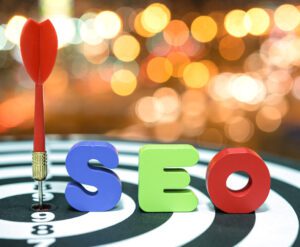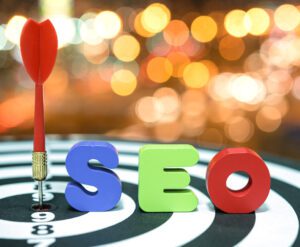Lead generation is a vital component of contemporary business, and it will continue to evolve and change as technologies progress. With advances in artificial intelligence, automation, and digital marketing, the future of lead generation appears more promising.
Regardless of the nature of your business, leads or prospective consumers are essential to its growth. Print media, radio, and television dominated lead generation for decades until the eventual birth of the internet when everything began to change. In the early 2000s, as search engine usage began to gain momentum and overall internet usage increased significantly, email, the rise of pop-up ads, and websites jamming keyword density by filling the bottom of their homepage with repeated keywords dominated lead generation.
In this article, we will explore some of the predictions and trends that will shape the future of lead generation and how businesses can prepare for them. Whether you are a marketer, salesperson, or business owner, this article will show you what the future holds and how to stay ahead of the curve.
Why are Lead Generation Marketing Trends Significant Now?
Lead generation has changed dramatically over the past decade. Following the COVID-19 pandemic, the swift transition to digital modalities increased buyer awareness. It allowed decision-makers to search for solutions without contacting marketers.
B2B customers prefer digital service tools to traditional ones because they are more comfortable buying online and desire to get the most out of the product or service they buy. Due to these circumstances, new trends in lead generation have emerged.
The growing significance of AI in lead generation
AI is rapidly altering the manner in which businesses generate leads. From chatbots to predictive analytics, AI plays a greater role than ever before in lead generation. AI’s ability to process vast quantities of data in real-time enables businesses to identify the most promising prospects and tailor their approach to each individual. For instance, chatbots can engage with prospective leads in real-time, respond to their queries, and even qualify them based on their responses. Predictive analytics, on the other hand, can assist firms in forecasting which leads are most likely to convert, allowing them to prioritize their efforts and use resources more effectively.
Using AI in lead generation saves time and effort while enhancing the lead’s overall experience. Traditional methods are slower, less efficient, and cannot provide a more personalized experience than AI-powered lead generation. With the continuous development of AI technology, it is likely that we will see even more innovative and effective AI-powered lead generation solutions. In order to remain ahead of the competition, businesses should pay close attention to the increasing role of artificial intelligence in lead generation.
The rise of account-based marketing
Account-based marketing (ABM) is a targeted and customized approach to lead generation that focuses on high-value accounts. ABM takes a more targeted approach by focusing on a specific set of accounts that have been identified as optimal customers, compared to traditional lead generation, which casts a wide net in hopes of attracting as many leads as possible.
The emergence of ABM is fueled by the growing need for businesses to reach and engage their most valuable prospects. ABM enables businesses to tailor their marketing and sales efforts to each account’s unique requirements and objectives, increasing the likelihood of success and the return on investment. By adopting a more personalized approach, ABM can help businesses strengthen their relationships with prospects, resulting in more closed deals and increased revenue.
ABM necessitates close collaboration between marketing and sales teams as well as an in-depth understanding of target accounts. Businesses must have a comprehensive view of their target accounts, including their challenges, pain points, and objectives. ABM delivers more relevant and impactful interactions with prospects by combining this knowledge with targeted and personalized outreach, allowing businesses to stand out in a congested marketplace.
However, businesses should pay close attention to the rise of account-based marketing to generate leads and drive revenue more efficiently and effectively.
The future of lead scoring and qualification
Lead scoring and qualification are vital to lead generation and will only become more critical. Lead scoring involves assigning a score to each lead based on their likelihood of conversion, while lead qualification involves determining which leads are ready to move further down the sales funnel.
Advancements in AI and machine learning will likely shape the future of lead scoring and qualification. With the ability to process vast amounts of data in real time, AI can help businesses identify the most promising leads and prioritize their outreach efforts more effectively. AI-powered lead scoring and qualification can also provide more accurate and up-to-date information, allowing businesses to make more informed decisions and allocate resources more effectively.
The use of predictive analytics is also likely to play a bigger role in the future of lead scoring and qualification. By analyzing data such as demographic information, browsing history, and past interactions, businesses can predict which leads are most likely to convert, allowing them to prioritize their efforts and allocate resources more effectively.
Future Prospects for Lead Generation
Lead generation has always been a crucial aspect of any business. It is the process of identifying potential customers for a product or service and then converting them into actual customers. However, how leads are generated has evolved over time, and this trend will likely continue. Here are the most significant future trends of lead generation in the coming years.
Personalization
One of the key trends in lead generation is personalization. Today’s consumers are bombarded with marketing messages from all directions and have become adept at tuning out irrelevant messages. In order to stand out from the crowd, businesses will need to personalize their marketing messages to each customer.
This means businesses will need to collect more customer data to understand their preferences, behaviors, and needs. They will need to use this data to craft marketing messages tailored to each customer. This could involve using AI-powered tools to analyze customer data and generate personalized recommendations.
Role of Social Media
Social media has already become an important tool for lead generation, and this trend will likely continue. Social media platforms like Facebook, LinkedIn, and Twitter provide businesses access to millions of potential customers. Businesses can use these platforms to target specific demographics and interests and to engage with customers directly.
We can expect to see more sophisticated social media lead-generation strategies in the future. For example, businesses might use chatbots to engage with customers on social media or AI-powered tools to analyze social media data and identify potential leads.
Voice Search – a Game-Changer
Voice search is already a popular way for people to search for information online, and this trend will likely continue. According to a report by Comscore, more than 50% of searches will be voice-based by 2022. This presents an opportunity for businesses to optimize their lead generation strategies for voice search.
In order to do this, businesses will need to focus on long-tail keywords and natural language phrases. They must optimize their content for featured snippets, the short, summarized answers that appear at the top of search results. Businesses that can provide the best solutions to voice search queries will be the ones that generate the most leads.
AI Will Be Used for Predictive Lead Scoring
AI-powered tools are already being used for lead generation, but we can expect to see more sophisticated uses of AI in the future. One area where AI is likely to play a big role is predictive lead scoring.
Predictive lead scoring uses data analysis and machine learning algorithms to predict which leads are most likely to convert into customers. This can help businesses prioritize their lead-generation efforts and focus on the leads most likely to generate revenue.
Customer Experience
Finally, the customer experience will be paramount in the future of lead generation. Consumers today expect a seamless, personalized experience across all channels, and businesses that can deliver on this expectation will be the ones that generate the most leads.
This means that businesses must invest in technologies that enable them to deliver a seamless customer experience. They will need AI-powered tools to personalize their marketing messages and optimize their lead-generation strategies for each customer. They will also need to use technologies like chatbots and social media to engage with customers directly and provide real-time support.
In conclusion, the future of lead generation is likely to be driven by personalization, social media, voice search, AI, and customer experience. Businesses that can adapt to these trends and invest in the right technologies will be the ones that generate the most leads and drive the most revenue.








